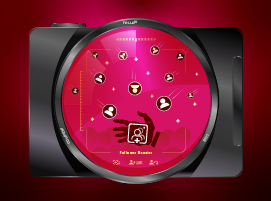How Online Tools Are Transforming Healthcare Awareness
Table of content

The digital revolution has reshaped nearly every aspect of modern life, and healthcare is no exception. Today, online tools are not only changing how patients access medical services but also revolutionizing healthcare awareness.
From AI-powered health assistants and wearable devices to virtual consultations, digital solutions are empowering individuals to take charge of their health like never before.
This article discusses the multifaceted ways online tools are not just informing, but actively transforming our collective understanding of health and healthcare.
The Rise of Digital Health Tools
The digital health revolution is rapidly reshaping healthcare awareness and accessibility. The global market , estimated at USD 288.55 billion in 2024, is projected to surge with a 22.2% CAGR from 2025 to 2030. This growth is fueled by a robust ecosystem of telehealthcare platforms, wearable tech, mHealth apps, and e-prescription systems.
Over the past decade, we've witnessed an explosion of digital health tools. Wearables, including smartwatches, fitness trackers, and home diagnostics, now offer continuous, real-time health data, from vital signs to glucose levels. Complementing these are AI-powered health applications and personal assistants that provide personalized guidance and medication reminders.
These innovations are not merely convenient. They are crucial in democratizing healthcare access, particularly for individuals in remote or underserved regions.
AI and Predictive Analytics in Personalized Healthcare
Artificial intelligence is quickly emerging as a fundamental element in revolutionizing healthcare, promoting personalized and proactive care approaches. AI-powered platforms possess the remarkable ability to analyze extensive datasets. They generate tailored health recommendations, predict potential disease risks, and even suggest preemptive strategies.
For instance, AI algorithms can discern subtle patterns within a patient's medical history, effectively flagging early indicators of conditions like diabetes or heart disease. This fundamental shift from reactive treatment to proactive intervention empowers individuals to detect illnesses in their nascent stages, significantly improving outcomes.
Illustrating AI's transformative potential, a Mayo Clinic cardiology study demonstrated its success in identifying individuals at risk of left ventricular dysfunction. It’s a condition characterized by a weakened heart pump, even in the absence of overt symptoms.
The chief AI officer at Mayo Clinic further highlights an AI model that can incidentally detect significant coronary artery calcium. This advancement allows the model to flag individuals at high risk for future heart attacks or strokes years in advance.
Patient Empowerment Through Education and Engagement
Online tools are making healthcare more accessible and easier to understand, empowering patients to take control of their health. Interactive features like health risk assessments, patient portals, and educational videos help users learn about symptoms, treatments, and preventive care. Video tutorials and webinars simplify complex medical topics, while social media and online communities provide peer support and shared learning opportunities.
Mental health, once stigmatized, is now a key focus in digital health campaigns. Organizations like SAMHSA offer toolkits and resources to promote mental health literacy and foster supportive conversations.
However, digital innovations in mental health present unique challenges, as highlighted by the NIH. A panel of international experts emphasized that digital approaches may be most effective across traditional diagnostic systems.
Additionally, the clinical implementation of digital tools requires creative solutions, including training clinicians and patients, and working alongside digital navigators to support shared decision-making. These innovations are reshaping mental health care, offering new possibilities for personalized, accessible treatment.
Legal Awareness and Patient Advocacy
As digital tools increase healthcare transparency, they also spotlight important patient safety issues. One recent example is the Bard Power Port lawsuit . The Bard Power Port, a medical device used to deliver medications directly into the bloodstream, has been the subject of numerous lawsuits.
TorHoerman Law notes that plaintiffs claim that the device’s design defects led to complications such as infections, blood clots, and device fractures. These lawsuits have raised critical questions about device safety, manufacturer responsibility, and informed consent.
Online platforms and legal resources have played a vital role in raising awareness, connecting affected patients, and providing updates on litigation. This digital advocacy empowers patients to seek justice, demand accountability, and make better-informed decisions about their care.
Patient-Provider Collaboration Through Digital Tools
The relationship between patients and healthcare providers is becoming more collaborative, thanks to digital tools that enhance communication. Patient portals now allow two-way interaction, giving patients access to their health records, appointment scheduling, and direct messaging with care teams. For individuals managing chronic conditions or mental health, these real-time check-ins and data sharing can significantly improve care.
Healthcare organizations are also tapping into digital marketing strategies, such as voice search optimization and interactive content, to reach broader audiences. This ensures that accurate, timely health information is available to those who need it most.
Moreover, according to McKinsey & Company, leading healthcare organizations are entering the health media market. They are either creating their content or partnering with content providers to serve ads or sponsored content.
Examples include Cleveland Clinic’s disease-specific content with ads, Kaiser Permanente’s self-care app offerings, and Mayo Clinic’s sale of health products alongside informational content. Northwell Health is even planning to launch a studio for scripted and unscripted health content.
Frequently Asked Questions
How does digitalization affect healthcare?Digitalization in healthcare helps reduce costs by automating processes and increasing operational efficiency. With rising administrative costs, digital transformation enables organizations to streamline workflows, reduce overheads, and improve service delivery. This ultimately lowers patient care charges, making healthcare more affordable while enhancing the quality of services.
How is digital transformation shaping the medical device industry?
Digital transformation in the medical device industry involves integrating advanced technologies like IoT, AI, and data analytics into devices to improve patient care. These innovations enable real-time monitoring and predictive analytics. They also enhance diagnostics, leading to more personalized treatment, better outcomes, and increased operational efficiency within healthcare systems.
Are digital health tools secure and reliable?
Digital health tools are generally secure and reliable, but their effectiveness depends on the implementation of strong security protocols and regulatory compliance. Reputable tools use encryption, data protection measures, and follow standards like HIPAA to ensure patient privacy. However, risks still exist, so users should choose tools carefully.
Online tools are fundamentally transforming healthcare awareness by making information accessible, actionable, and personalized. From AI-driven insights to interactive education and legal advocacy, these innovations empower individuals to become active participants in their own health journeys.
As technology continues to evolve, the future of healthcare will be defined by collaboration, transparency, and a relentless focus on patient empowerment.



